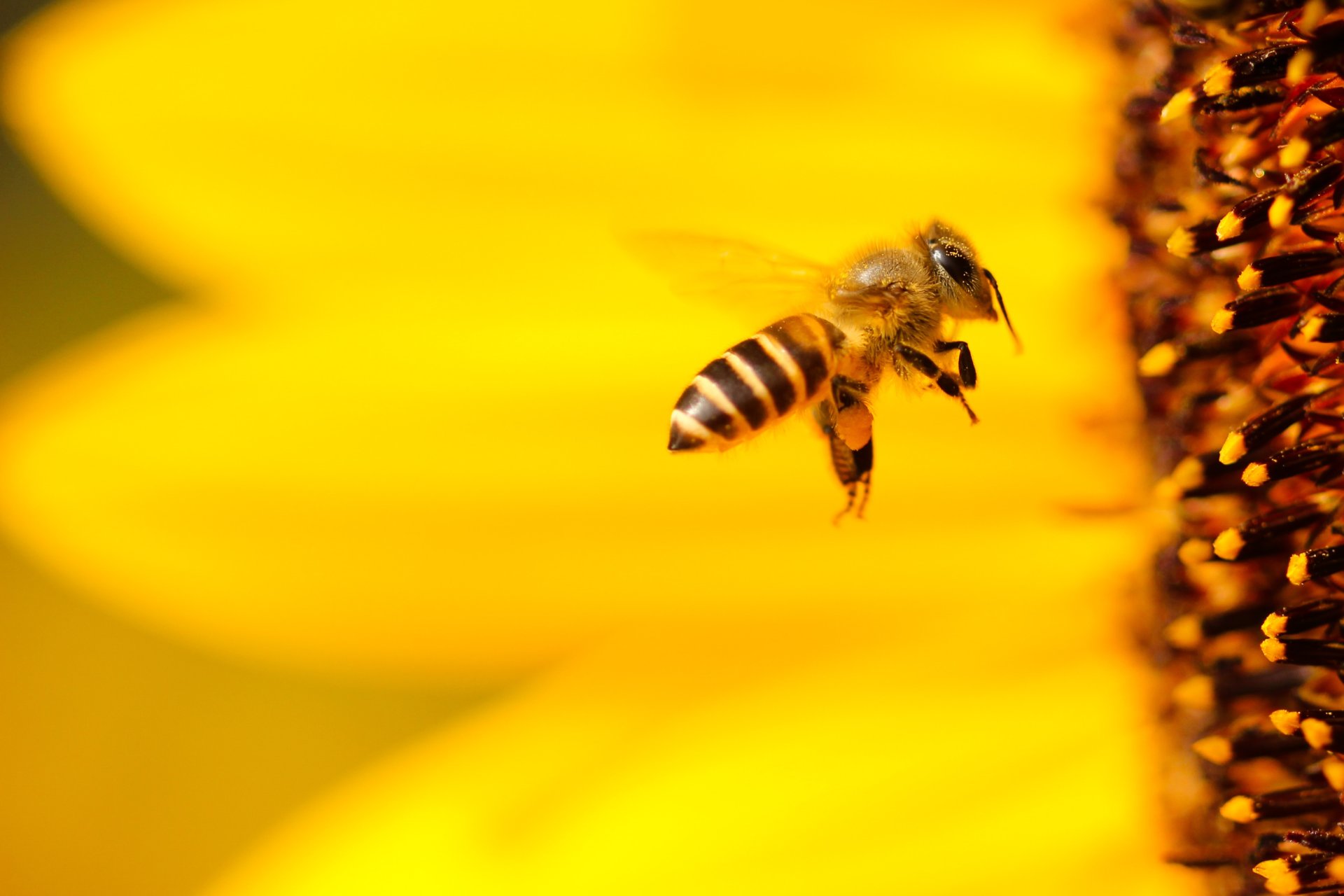EcoSpeed Hands Out Free Packets of Bee-Friendly Seeds to Tackle Bee Decline
Blog
28th May 2014
Bees, and most other pollinating insects, are suffering major declines across the UK and as a responsible courier company, EcoSpeed want to raise awareness of the problem and offer some solutions.
In Britain all of our important pollinators are insects and the majority of them are facing severe threats and unprecedented declines.
Climate change, agriculture, pollution, human expansion, invasive species, habitat loss and fragmentation all act synergistically upon our wild populations of mammals, birds and insects, including our pollinators.
Pollinators are extremely important as they help to cross-pollinate the flowers for most of our crops and wild plants, however, two important threats seem to be affecting them: one is brain damage and the other is starvation… Yes, you read that right.
Brain Damage
Brain damage is a threat that all of our pollinating insects face; bees being more prone than most. You might wonder how a bee acquires brain damage. Well, neonicotinoids are harmful chemicals used as pesticides; they are an alternative form of nicotine and are very effective at controlling commercial pests. Research has proven that once a bee collects nectar from a plant treated with this chemical, it affects the bee’s ability to return to the hive. Lab tests upon bees show that these chemicals cause the bee’s brains to become damaged. Neonicotinoids can be bought over the counter in pesticides from most DIY stores so please try to limit your use of these or totally avoid them all together.

Starvation
Commercial rapeseed oil production and all mono-agriculture in the UK creates large pockets of flowering plants for only a few weeks at a time, forcing our pollinating insects into starvation when the crops have been taken away. The land used for monoculture covers large distances further limiting the chance of survival for pollinators. The energy it takes to find a resource is too much and they just cannot sustain themselves. Some farmers now plant small meadows around the edges of farmland, which seem to improve the situation slightly but the main problem is their use of neonicotinoids.
Some of the threats to pollinators cannot be helped or changed overnight, however, by planting wild flowers in your garden and by avoiding pesticides, you can help improve their lives. Many people have grass lawns in the UK, which are not very helpful to wildlife, so why not have a small wildflower meadow instead. It not only looks beautiful but requires no gardening. One small habitat in a vast landscape of patio’s can provide an oasis in a desert for a bee. Plants bribe pollinators with sweet nectar and nutrient rich pollen, this process facilitates plant reproduction, so the plants (and bees) can return each year. Common garden pollinators include honey bees, bumble bees, hoverflies, butterflies, moths and beetles, all of which are fascinating to watch and will also attract birds and other species into the garden.
Bee-Friendly Wildflower Seeds
EcoSpeed same day couriers are currently giving out free packets of organic bee-friendly wildflower seeds in order to create a network of plants and habitats around the North West.
Email us with your postal address and we will send you a free packet which you can plant at any point this summer. You can plant them anywhere, in your garden, in pots or simply on a rough bit of land. They are hardy native seeds so don’t need a lot of care or upkeep. Simply follow the steps on the packet.
Drop us a message on Facebook with your address or email info@ecospeed.co.uk and we will send you your free packet. Stocks are limited so get in touch ASAP.
Online Quotation
Please complete the form below to get a free quotation from us. If you have any questions or have an urgent enquiry then please call us on 0845 021 0213.

